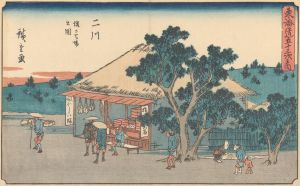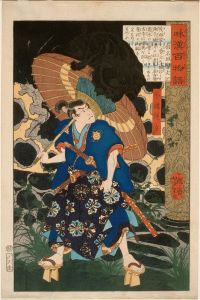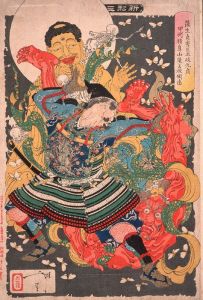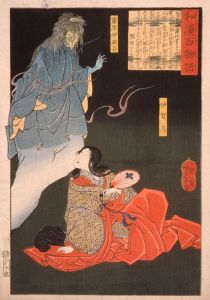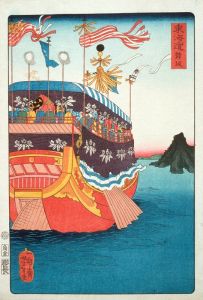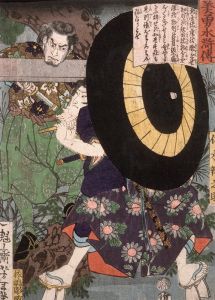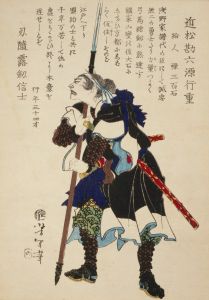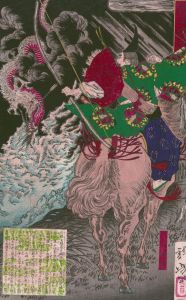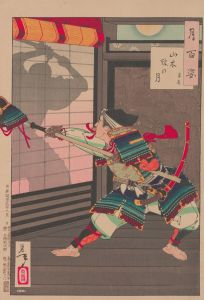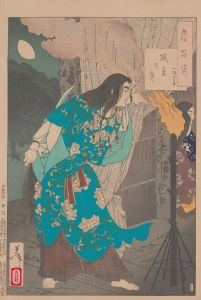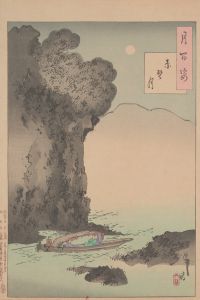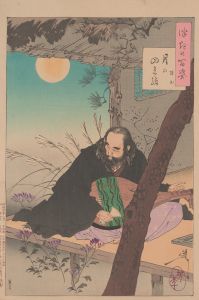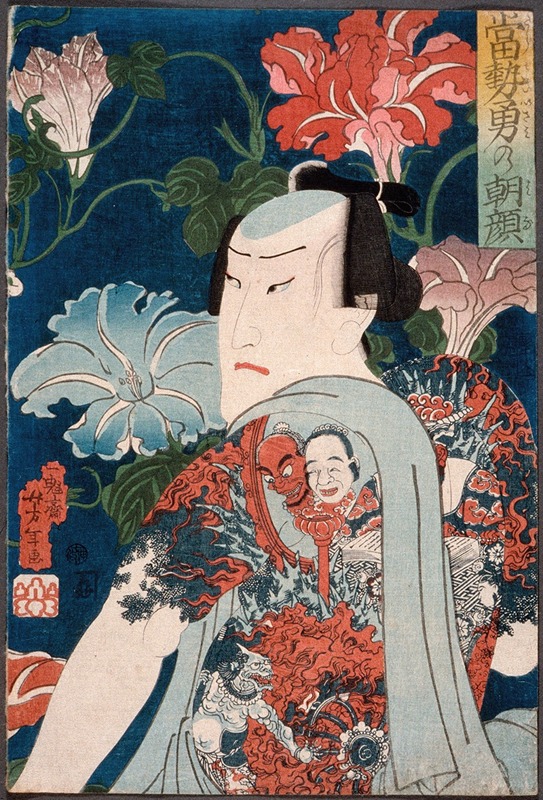
Modern Gallants with Morning Glories
A hand-painted replica of Tsukioka Yoshitoshi’s masterpiece Modern Gallants with Morning Glories, meticulously crafted by professional artists to capture the true essence of the original. Each piece is created with museum-quality canvas and rare mineral pigments, carefully painted by experienced artists with delicate brushstrokes and rich, layered colors to perfectly recreate the texture of the original artwork. Unlike machine-printed reproductions, this hand-painted version brings the painting to life, infused with the artist’s emotions and skill in every stroke. Whether for personal collection or home decoration, it instantly elevates the artistic atmosphere of any space.
"Modern Gallants with Morning Glories" is a woodblock print created by the renowned Japanese artist Tsukioka Yoshitoshi. Yoshitoshi, born in 1839 and passing in 1892, is often celebrated as one of the last great masters of the ukiyo-e genre of woodblock printing and painting. His works are known for their dynamic composition, innovative use of color, and often dramatic and emotional subject matter.
This particular print, "Modern Gallants with Morning Glories," is part of Yoshitoshi's series "Thirty-two Aspects of Customs and Manners" (Fūzoku Sanjūnisō), which was published in 1888. The series is notable for its depiction of women from various periods of Japanese history, showcasing different fashions, hairstyles, and activities that were characteristic of each era. Each print in the series is accompanied by a brief description, providing context and enhancing the viewer's understanding of the depicted scene.
In "Modern Gallants with Morning Glories," Yoshitoshi portrays a woman in contemporary Meiji-era attire, reflecting the rapid modernization and Western influence that Japan was experiencing during this period. The woman is elegantly dressed, with her hair styled in a manner that was fashionable at the time. She is depicted holding or interacting with morning glories, a flower that holds significant cultural symbolism in Japan, often associated with summer and the fleeting nature of beauty.
Yoshitoshi's use of color in this print is particularly striking, with vibrant hues that bring the scene to life. The attention to detail in the woman's clothing and the delicate rendering of the morning glories demonstrate Yoshitoshi's mastery of the woodblock printing technique. The composition is balanced and harmonious, with the figure of the woman and the flowers creating a sense of movement and grace.
The "Thirty-two Aspects of Customs and Manners" series, including "Modern Gallants with Morning Glories," is considered one of Yoshitoshi's masterpieces. It captures the transition of Japanese society from the Edo period to the Meiji era, highlighting the changes in fashion, culture, and daily life. Yoshitoshi's ability to blend traditional ukiyo-e techniques with contemporary themes and influences has cemented his legacy as a pivotal figure in the history of Japanese art.
Overall, "Modern Gallants with Morning Glories" is a testament to Tsukioka Yoshitoshi's skill as an artist and his keen observation of the world around him. The print not only showcases the beauty of the depicted subject but also offers a glimpse into the cultural and social transformations of late 19th-century Japan.





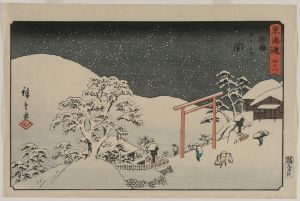
![Tora-no-mon-gai; Aoi Hill, Outside the Tiger Gate [Tora-no-mon]](/imgs/213040/s/ando-hiroshige-toranomongai-aoi-hill-outside-the-tiger-gate-toranomon-6629cde0.jpg)
